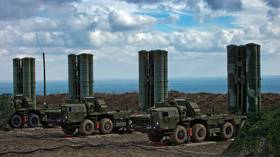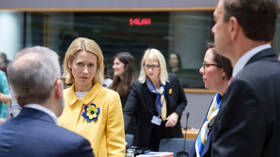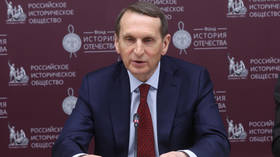Green energy rethink: 'Paying huge amounts of money to do nothing'
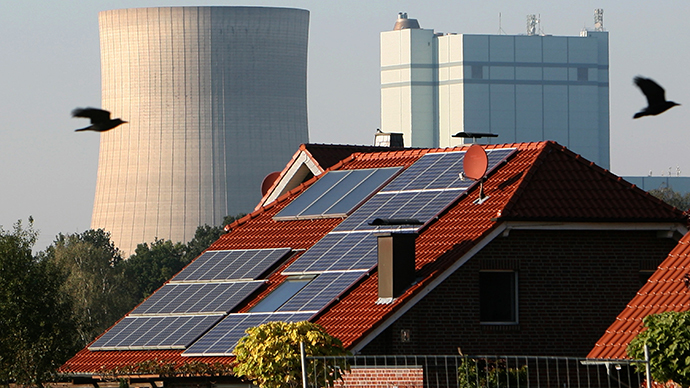
We need to stop paying for incredibly expensive green energy, and make sure it gets cheaper as fast as possible, otherwise huge amounts of money will be wasted on doing nothing, Bjorn Lomborg, a professor at Copenhagen Business School, told RT.
Lomborg says: “Whenever you buy an extra solar panel or
whenever you subsidize an extra windmill you don’t actually cut
carbon emissions, you simply make it cheaper for someone else to
use more coal fire power.”
RT:Utility firms say renewables are bad because their profits are plummeting and this could actually destroy traditional energy companies and suppliers, but surely the environment is more important than money here, isn’t it?
Bjorn Lomborg: Very clearly we do want to fix global warming, but you aren’t fixing it if you end up paying an enormous amount of money to do very, very little good. Now let’s remember that most of the subsidies that Europe gets go to wind and solar panels, but we already control that because we have an ETS (European Trading System) already in place. So whenever you buy an extra solar panel or whenever you subsidize an extra wind turbine you don’t actually cut carbon emissions, you simply make it cheaper for someone else to use more coal fire power. So the reality is that we just pay huge amounts of money to do virtually nothing.
RT:But that’s at the moment. Surely in the future, has it not been predicted that renewables will be the same price as traditional fuels? Europe should invest in that for the future.
BL: Well, Bill, you actually made the point right there. A
lot of people are saying the wind and solar is getting cheaper
and eventually getting cheaper than fossil fuels but what we then
should do, not buy now when it is incredibly expensive, but make
sure it gets cheaper faster because we want everyone to
transition. And of course, when it’s cheaper it will actually
help everyone. But as long as it is much more expensive, which it
is right now, it is both hampering Europe but it is also
hampering, as the energy giants pointed out, the traditional
energy providers because solar and wind are desperately dependent
on fossil fuels. Because what we do when the wind doesn’t blow or
when the sun doesn’t shine, we use those fossil fuel power plants
to make up for the shortfall, it they can’t make their credit
limit, if they are not actually profitable, they won’t be there.
That’s what Britain is now contending with, they are looking very
likely to get a blackout this winter or the next winter.
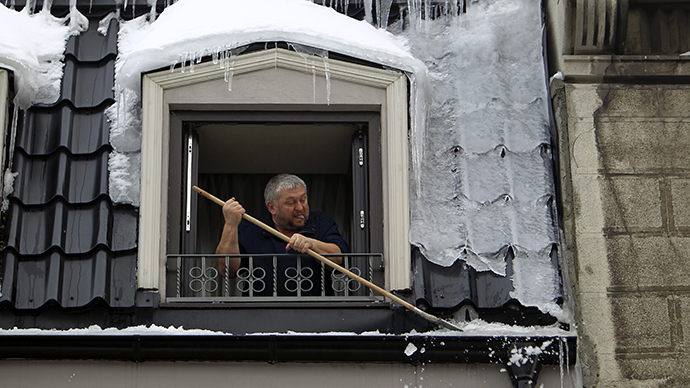
RT:But how damaging is this to the environment and, indeed, the world’s future for carrying on exploiting fossil fuels and not going away from them as quick as possible? Is the damage done and it is too little, too late or the sooner we go into renewables, then that would reduce the threat to the future of the planet?
BL: No, there are definitely years of problem with global warming but I’m pointing out, and I think that exactly would turn over their criticism as well, you are not actually solving it by throwing huge amounts of money at cutting very, very little. You are actually not dealing with a problem, you are both wasting your money and you are also not furthering a solution. What you need to do is to spend money on getting smarter technologies for the future so that eventually everyone, including China, which now is almost entirely dependent on coal, if we can make green energy cheaper than fossil fuels. Of course China would switch. But as long as it’s not, Europe can spend its way to feel good but they will not actually manage to do very good except, of course, wasting a lot of money.
RT:What is nuclear power’s role in this problem? It is a highly efficient way of producing energy, but of course the Fukushima disaster and countries like Germany backing away from it. Where is the nuclear power seen here?
BL: Well, I actually think the Fukushima disaster showed
that nuclear power is not that dangerous because that was the
worst thing you possibly throw out of it and yet we are
estimating not very many people are going to die because of it.
Remember, about 300,000 people die each year globally from coal
fire power plants just because of the air pollution. So there are
definitely damages to all energy suppliers. But what we have to
recognize is that nuclear power plants, when you take into
consideration the huge cost of decommissioning, they are still
much more expensive than fossil fuels. So definitely you should
keep the ongoing power plants running, it was silly for Germany
to cut them back, but when you are talking about making new power
plants, we actually also need research to make nuclear cheaper.
The statements, views and opinions expressed in this column are solely those of the author and do not necessarily represent those of RT.



